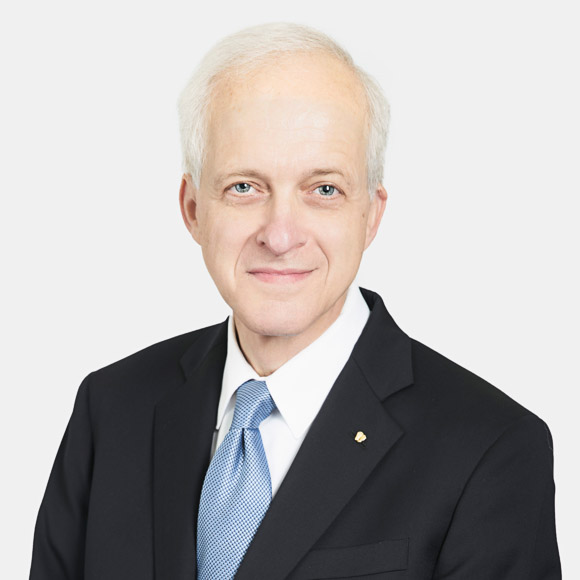The Minuses Win: A Physician’s Limited Liability For An IME Examination
By Paul V. Esposito
If you’re lucky, an answer is obvious. But for life’s thornier problems, an answer may not be so obvious—or not obvious at all. That’s why they’re thorny. So in figuring out an answer, we analyze competing considerations, sometimes even listing them in plus-and-minus columns to see which wins.
Recently, that’s essentially what the Utah Supreme Court did. Its thorny problem concerned the potential liability of a physician hired to perform an IME. The Court’s analysis is interesting. Kirk v. Anderson, 2021 Utah LEXIS 97.
Facts
A driver rear-ended Jeremy Kirk at a stoplight. Jeremy went to a hospital complaining of left-side pain. Because he had been on the job, Jeremy filed a worker’s compensation claim. It resulted in his meeting Dr. Mark Anderson, hired by a third-party administrator to conduct an IME.
Dr. Anderson concluded that Jeremy suffered a transient cervical strain, with all other complaints and symptoms secondary to pre-existing conditions. The doctor reported that Jeremy: (1) could return to work with only the limitation of his pre-existing arthritis, (2) had reached maximal medical improvement within three days of the accident, (3) should be released from care without restriction, and (4) did not qualify for an impairment rating. Dr. Anderson informed Jeremy that he performed an IME, there was no doctor-patient relationship, he was not giving medical advice, and he would not become Jeremy’s treating physician. Following the report, the administrator denied various work comp benefits.
Jeremy appealed to the Labor Commission. Finding that the accident caused an ACL tear, aggravation of spinal degeneration, temporary cervical whiplash, and a mild concussion, the Commission ordered payments.
Jeremy sued Dr. Anderson for negligent and reckless conduct; he sued the administrator for vicarious liability. Jeremy alleged delays in payments of medical expenses and comp benefits, prolonged aggravation and emotional distress, and needed to hire experts to rebut the IME. The district court dismissed the action because Dr. Anderson did not owe him a duty.
Analysis
The Utah Supreme Court agreed. It rejected Jeremy’s argument that Dr. Anderson owed a duty of care arising out of “special relationship” existing in the worker’s comp context. A physician-patient relationship only exists if there is a “patient.” In a work comp context, a physician performing an IME does not have a patient. Rather, a physician conducting an IME is gathering information used for employment and financial decisions. Besides, Dr. Anderson’s disclaimer of a doctor-patient relationship evidenced his intent to only serve the interests of his employer—the administrator.
The thornier issue was whether, even absent a doctor-patient relationship, Dr. Anderson owed a duty arising out of his own affirmative conduct. The Court concluded that even though the law does not always bar a non-patient’s recovery from a physician, it barred a recovery here. In evaluating duty in unintentional tort actions, a court must consider: (1) whether a physician’s conduct was an affirmative act or merely an omission, (2) the legal relationship of the parties, (3) the foreseeability or likelihood of injuries, (4) the public policy as to who can best bear the loss, and (5) general policy considerations. The Court treated the first three as “plus” factors supporting a duty, the latter two as “minus” factors negating it.
The Court ruled that assuming that all “plus” factors existed, the fifth factor was an overwhelming “minus.” First, imposing a duty would chill the involvement of experts if injured persons could sue experts for opinions that delayed proceedings. Second, experts provide vital services in the administration of health care and worker’s comp benefits that the prospect of suit should not disrupt. An independent examiner provides unbiased opinion regarding the need for treatment, while a treating physician provides unbiased treatment. As for the prospect of delays, an IME is just a step in a legal process that provides its own remedy for delays. Finally, because a medical examiner has a contractual relationship with an employer, imposing a duty to the injured person can create problems, and even put an examiner in a conflict of interests.
Learning Point: Kirk is good news for independent medical examiners and those who retain them. It is not a complete pass from liability. A doctor who injures an examinee (say by overstretching a body joint) is subject to liability even asbsent a physician-patient relationship. The Court left open the possibility that an examiner might owe limited duties not implicated by the facts here. And it did not decide whether an independent medical examiner is an agent of an insurer. But if an examiner acts in good faith and within the standard of care, no liability should attach regardless of the examiner’s conclusions.
 Paul V. Esposito
Paul V. Esposito